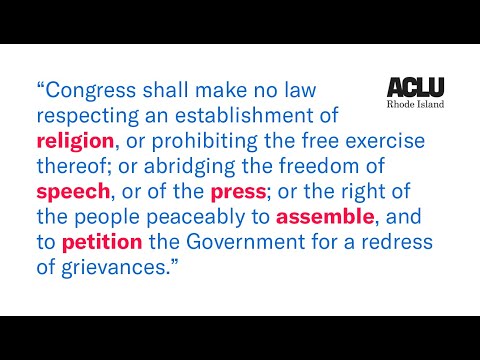The information below is about the First Amendment rights of K-12 public school students in Rhode Island.
Keep in mind that school policies on issues that may affect your exercise of First Amendment rights can vary from district to district, so you should check your student handbook for details.
Last Updated: January 2023
The information below should not be taken as legal advice. If you have additional questions, or if you feel your rights have been violated, please contact the ACLU of RI.
Additional resources:

